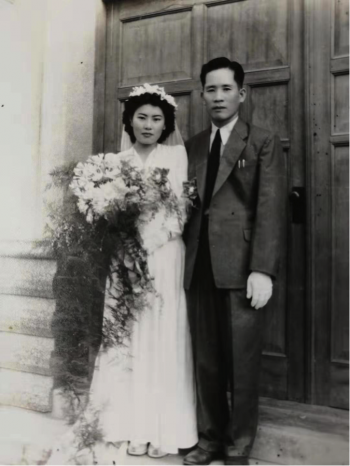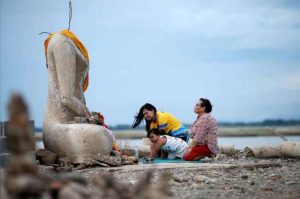After World War II, Chinese books were in great demand in Taiwan. Seeing the opportunity, Li Ching Yun (李慶雲) opened the first Chinese bookstore in his city Kaohsiung in 1946. When choosing the name “Ching Fang Bookstore” (慶芳書局), Li Ching Yun took one character from his own name, and the other from his first son’s name, in the hope that the business would last for generations. Over the decades, Ching Fang Bookstore has become a household name in Kaohsiung and has established a wide clientele in southern Taiwan. The family business was passed down to the five sons of Li Ching Yun and they have been managing the bookstore together up to this day.
With the rise of the Internet, Ching Fang Bookstore smoothly transitioned from publishing a comprehensive array of book subjects to focusing on textbooks and private tutor services. Working in collaboration with local schools and universities, the family business is still striving. However, today not many people know that Ching Fang Bookstore had deep connections with major Buddhist institutions in Taiwan, including the “Four Great Mountains,” and was involved in the rapid development of Buddhism in Taiwan in the late 20th century.
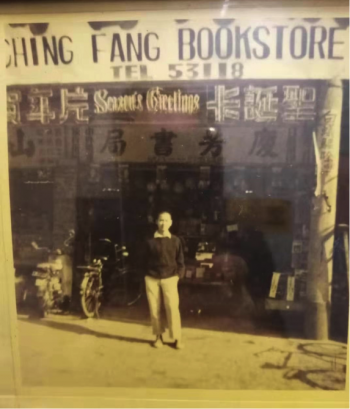
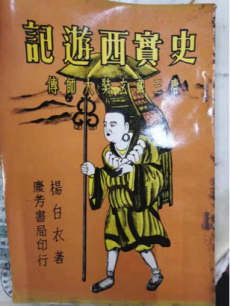
The stories came to light when I met Venerable Jian Cheng (見城) at a conference at Dharma Drum Mountain in Taipei. She was tonsored under Master Venerable Wei Chueh (惟覺)(1928-2016) at Chung Tai Chan Monastery and is currently pursuing her PhD studies at the University of Lancaster in the UK. Venerable Jian Cheng is the third generation from the Li family who runs the Ching Fang Bookstore. Although her grandfather Li Ching Yun passed away when she was only one year old, Venerable Jian Cheng grew up around the bookstore and learned about family history from her parents and uncles. She told me, “I remember the bookstore was always crowded, and at its peak we had about 20 employees helping with the daily operations and deliveries across Taiwan.”
In the early days, almost half of the books at Ching Fang were on religious subjects. It not only brought in books from the mainland, but also later published works by monastics and lay Buddhists in Taiwan. Therefore, the bookstore was frequented by influential Buddhist masters at that time, including Zhuyun (煮雲) (1919-86), Hsing Yun (星雲), Ching Hsin (淨心), Chin Kung (淨空), and Chan Yun (懺雲) (1915-2009).
In the 50s, heated debates took place between Buddhist and Christian communities around Taiwan. As a response to misunderstandings and attacks, Master Venerable Sheng-Yen (聖嚴) (1931-2009) wrote his first book Commentaries on the “Refutation of the Differences between Buddhism and Christianity” in 1956. Its printing and publication was managed by Ching Fang Bookstore. However, the 1,000 copies were sold out very quickly and even Venerable Sheng-Yen himself did not keep one. When he returned to Taiwan after completing his PhD in Japan, his disciples tried in vain to search for a copy at Ching Fang Bookstore and through newspaper advertisements. Eventually they retrieved one in 1983 from Venerable Master Zhuyun and put it into reprinting. A few years later, Master Venerable Sheng-Yen founded Dharma Drum Mountain, which brought Venerable Jian Cheng and me together.
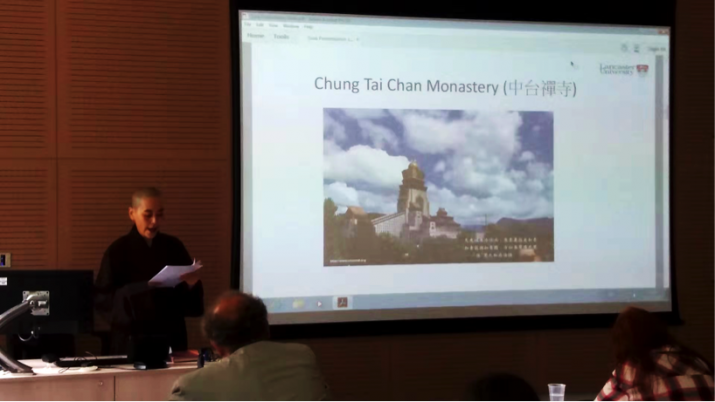
Image courtesy of Ven. Jian Cheng
As Venerable Jian Cheng recounted, her grandfather was dedicated to supporting Buddhism. When Master Venerable Hsing Yun (星雲) , founder of Fo Guang Shan, was building the Kaohsiung Buddhist Hall, Li Ching Yun helped to raise funds and served as a board member for the organization. He also sent his two oldest sons to the kindergarten that was affiliated with the Hall. In fact, the family’s faith in Buddhism can be traced back to Li Ching Yun’s mother. Being illiterate herself, she would ask her two daughters to read out Buddhist sutras for her, so she could learn to recite. The family legend has it that Li’s mother passed away in a seated meditation posture. Moreover, Li’s two sisters later both received full ordination. As Li became very successful with his business, he built Bodhi Chan Temple (菩提禪寺) for his sisters. Since then, the temple has served as a small nunnery in the local community. Between 1977 and 1994, Tzu Chi Foundation, which was founded by Master Venerable Cheng Yen (證嚴), chose the site to distribute their compassion relief in Kaohsiung.
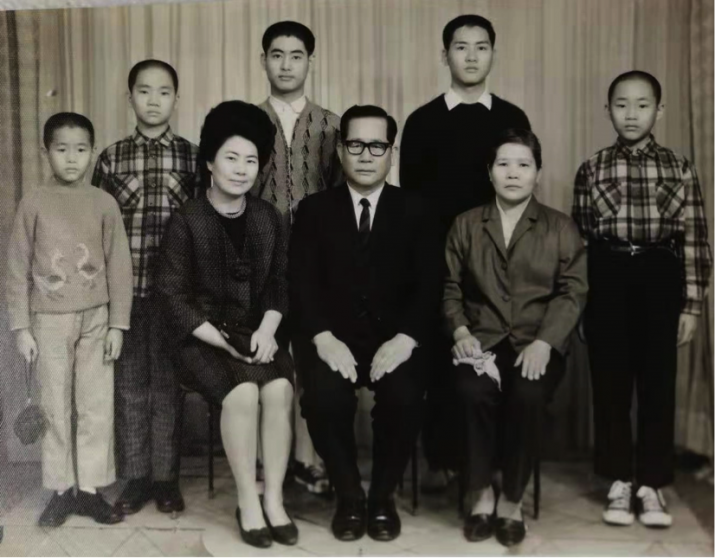
One would think that it must have been a natural decision for Venerable Jian Cheng to become a bhikkhuni. However, the Li Family has in fact a diverse religious background. Jian Cheng’s grandmother Ma Siou Ying, who is now 90 years old, is Christian. Among their five sons, the first two are Buddhist, the third son is atheist, while the younger ones are Christian. Jian Cheng told me that differences in belief have never been a problem. The whole family frequented Bodhi Chan Temple and would also go to church together with her grandmother. Her grandmother also believed in many Buddhist concepts, such as karma.
As she grew up, Venerable Jian Cheng found great affinity with Buddhism. Before attending primary school, she devoured books about tales of Shakyamuni and Guan Yin at Ching Fang Bookstore. Her first meditation retreat took place when she was only 15, under the tutelage of Master Wei Cheuh. During her adolescence, she often contemplated impermanence and the purpose of life. She wondered, “what kind of life should one pursue, so he or she shall not die in vain?” Her answer of devoting one’s life to benefiting others was later confirmed by the “Bodhisattva path” advocated in Mahayana Buddhism. That was why, at the age of 20, Jian Cheng decided to follow Master Wei Chueh and became his 1062th nun disciple.
Over the years, Venerable Jian Cheng has felt her life become larger and she has experienced much more than what she could have imagined: washing vegetables for tens of thousands of ritual attendees from 4am to 10pm, opening up a land to construct a monastery from scratch in Los Angeles, travelling around Europe and meeting people of diverse cultural and religious backgrounds. Jian Cheng is more and more aware that religion is the source of spiritual strength, and it gives life meaning through dedication and gratitude. “Master Wei Chueh always taught us to make great vows,” she explained to me, “and I have found my mission to promote Buddhist teachings in the West.” Jian Cheng observes that mindfulness has gained great popularity, and her PhD thesis aims to elucidate practices and methods in Chan Buddhism to benefit more people beyond religious beliefs.
When asked about the future of the bookstore, the Li Family seem to be very Chan about it. They will just keep on doing what they can do to serve the community. However, as a revealing case study of Buddhism in modern Taiwan, Ching Fang Bookstore provides great materials for understanding the institutions, patronage, bhikkhunis, and religious inclusiveness. Venerable Jian Cheng expressed that she would like to delve deeper into that when she completes her doctoral studies.
